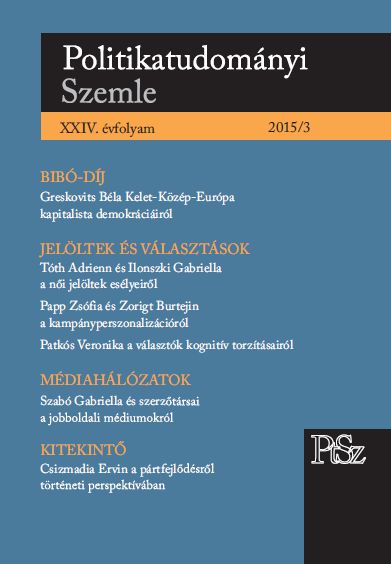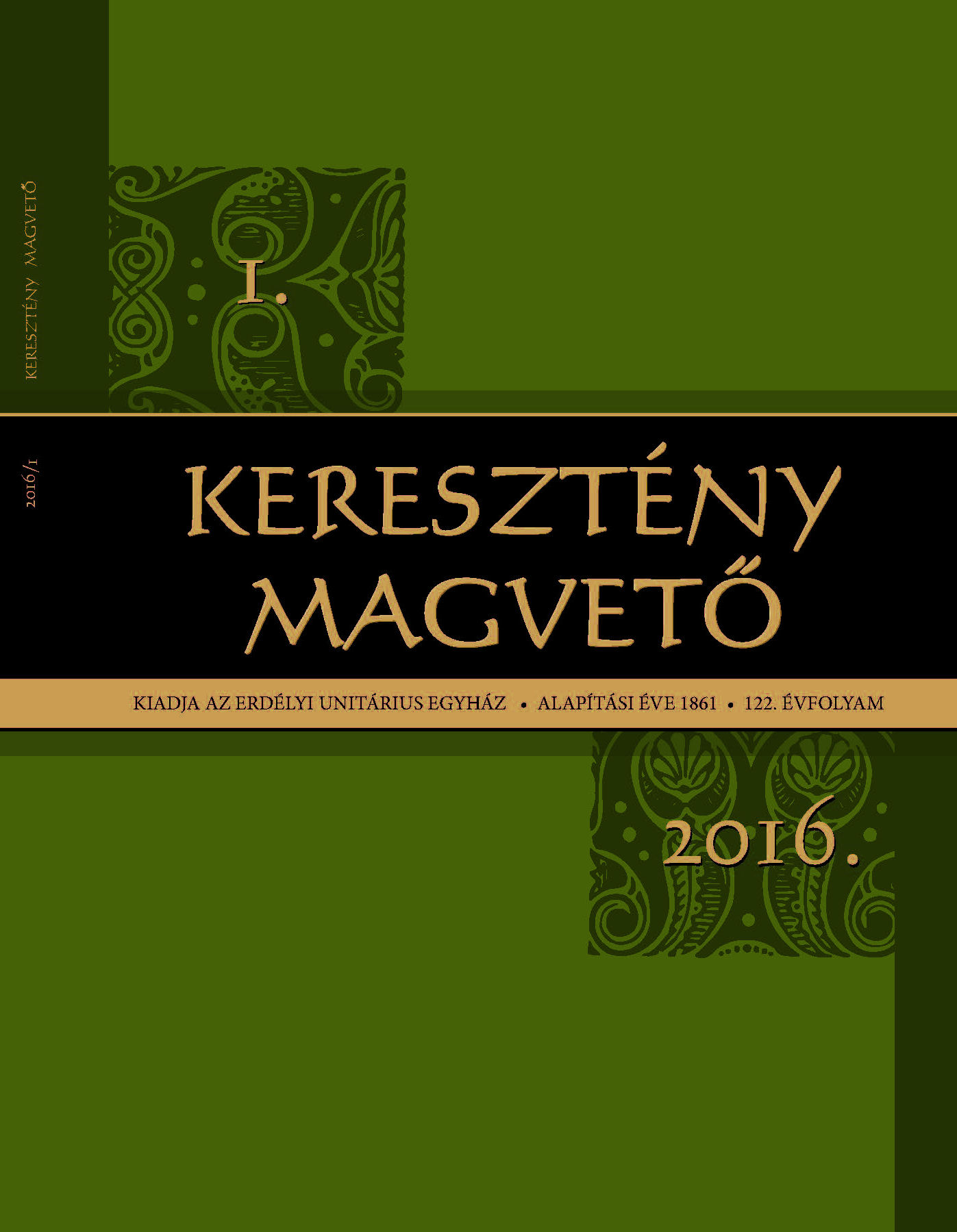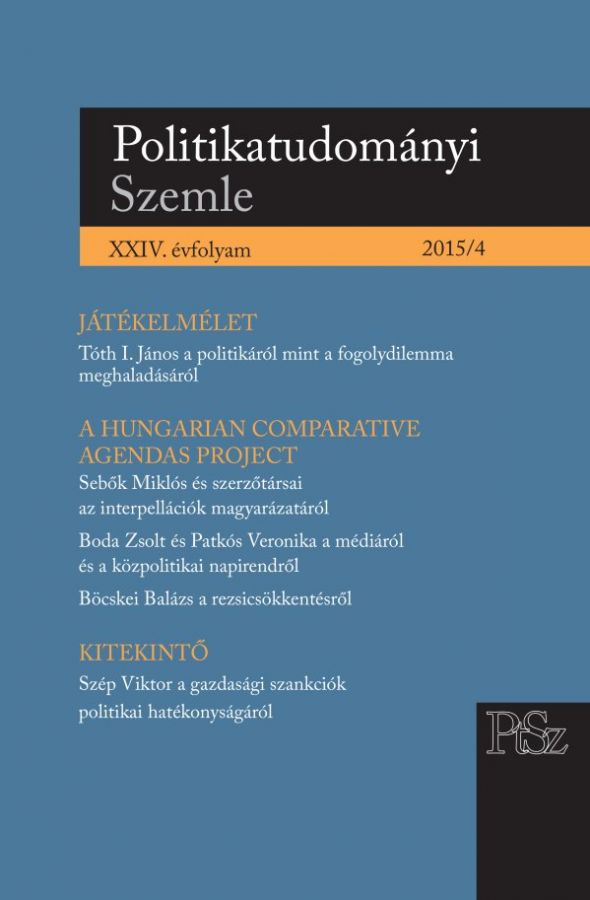



Keywords: Unitarian Confi rmation Catechism; Hungarian Unitarian Church; translations; editions; Mór Károly Gratz (GER); Remigius Martin Suter (GER); Hubert Tassatti (GER); Gergely Benczédi (GB); György Andrási
József Ferencz’s Confi rmation Catechism (also called the Confi rmation Catechism of the Hungarian Unitarian Church) has been translated from Hungarian into: German, English, Romanian, Finnish, Norwegian, Italian, and French. This paper covers the life and activity of translators, as well as the historical background, and the importance of translations.
More...
Keywords: Jesus; women; radicalism; Jewish tradition; equality; women disciples; “daughter of Abraham”
During the first century women’s status and freedom was strictly limited by Jewish law and custom. And there is no attempt within the gospel and later the New Testament traditions to feature the role of women. Th erefore, the high number of references to women in the Jesus tradition is historically intriguing in itself. It shows unmistakably that Jesus’ attitude towards women can certainly be called radical or revolutionary.We find several specifi c references to women disciples. We see Jesus addressing women directly while in public. Contrary to the rabbis and other teachers of the day, we see him using illustrations of his teaching, where women are presented as positive spiritual examples and role models. We see Jesus defending women before hostile religious leaders and a furious multitude, and using the unheard phrase “daughter of Abraham”. We see a Jesus who extends honor and respect to all women. He teaches that women are men’s equals in the sight of God, and they also can receive God’s forgiveness and love. We see a Jesus who never treats an individual woman as merely a member of a class of people, but as a person in her own right, assuming that they are a part of Israel and are sharing in the new reality of the Kingdom of God.
More...
Keywords: József Faragó; ethnology; folklore; Transylvania; János Kriza; Unitarian bishop;letters;
The article provides a new perspective upon the image, the scientific work, method and ethics of the well known Transylvanianethnologist, József Faragó. Under the Communist regime Faragó was one of the last ones allowed to earn a scientific degree in ethnology and folklore before the authorities banned the ethnology department in 1948. (Note: the“one and only” phrase does not make sense because the rest of the article talks about his conflicts with “his contemporary or fellow scholars" in the profession during his time) His contemporary or fellow scholars did not normally criticize his methods and ways of working, because Faragó would use all his influence to sabotage the career of anyone that dared to contradict, to find personal, specific initiativesin folklore or ethnology. There were only a few scholars who dared to draw attention to his scientific inaccuracies: Árpád Antal, Károly Borbáth, or most recently Katalin Olosz,. As the documents of the Securitate have slowly become available, one can begin to study the time and circumstances of József Faragó’s infamous scientific work. Some records are already available (for example, Ádám Könczei’s) that reinforce the suspicion that the unethical jealousy in his scientific career must have been nurtured by the Communist status quo. The article builds upon certain cases and arguments driven from the Kriza-research (János Kriza (1811 - 1875) Unitarian bishop) by Faragó: the scholar never published the Kriza-letters of which he stated that he copied them all in order to publish them, and throughout the decades he managed to create the illusion that the original Kriza-letters were lost in the WW II.
More...

Keywords: The tribute passage; Mk 12:13-17;
More...


Keywords: Bölön; Unitarian Chruch
More...

Keywords: Comparative Agendas Project;
More...
Keywords: Legislative studies; parliamentary questions; electoral connection; policy specialization;
The paper investigates the factors shaping the number and content of interpellations, a form of parliamentary questions by MPs in post-regime change Hungary. A number of hypotheses are drawn from four theoretical propositions: political control; policy-oriented information seeking; parliamentary group leadership and constituency service. A new database consisted of 4096 observations for the period 1990–2014 of the Comparative Agendas Project is compiled in order to analyse these hypotheses and to better understand the legislative activity of MPs. Count data regressions are utilized in order to gauge the impact of government and opposition position; the source of the mandate in a mixed electoral system; and the position in the parliamentary faction on the number of interpellations presented. We fi nd that opposition MPs interpellate more, whereas representatives of single-member districts and regional lists interpellate less than their peers. Computer-assisted content analysis techniques and regressions are used to describe the text of interpellations in terms of their geographical and policy content. Our results show that representatives from single member districts and regional lists make more reference to local issues, although these references are not necessarily aimed at their own district or county. Furthermore, policy specialization (as measured by committee membership) increases the likelihood of submitting pertinent parliamentary questions.
More...
Keywords: Economic sanctions; restrictive measures; coercive measures;
There has been a debate for decades among scholars and policymakers whether economic sanctions are effective or not. The effectiveness of restrictive measures are often disparaged and regarded as an unproductive foreign policy tool. Despite this pessimism in the literature, states around the world, especially the United States, have been increasingly applying economic statecraft against other countries in order to achieve their foreign political objectives. The European Union has also become active in imposing sanctions for the last couple of years. Nevertheless, the overall perception of restrictive measures has not changed much since most of the authors still argue that economic sanctions have its own limit, therefore, they cannot achieve breakthrough results in world politics
More...
Keywords: Review;
Stumpf István: Erős állam – alkotmányos korlátok. Budapest, Századvég, 2014. 280 s.
More...
Péter Bajomi-Lázár: Party Colonisation of the Media in Central and Eastern Europe. Budapest–New York, CEU Press, 2014. 273 s.
More...

Keywords: Brussels II bis Regulation; cross-border cases; the return of the child; recognition of the judgment by law; execution of judgment
Abstract: Free circulation of judgments within the EU of the authentic instruments and agreements in matrimonial matters and in matters of parental responsibility is provided for in Regulation (EC) no.2201/2003 of the Council of 27 November 2003 concerning jurisdiction, recognition and enforcement of judgments in matrimonial matters and in matters of parental responsibility, repealing Regulation (EC) no. 1347/2000. For two categories of judgments, this Regulation provides for the suppression of exequatur. In this article we intend to continue analyzing the suppression of the exequatur under the situation of judgments in family law matters, relating to the return of the child in the cross-border cases, on judgments passed in another Member State.
More...Keywords: progress; European Convention on Human Rights; interventionism; principle of subsidiarity; margin of appreciation
Abstract: In the current article author tries to focus on a problem of progress in the European Convention of Human Rights. Objectives: The main objective is to discover how the idea of progress, contained in numerous international legal sources, is reflected in a recent case-law of ECtHR. Prior Work: Regardless the fact, that there have been published tens of works dedicated to the concept of progress in the public international law during the last decades, none of them has been targeted on currently investigated issue. Approach: Firstly, the author analyses particular international treaties and tries to evaluate their inspiration by the idea of progress. Subsequently, he finds the reflection of this general idea in the current decision of ECtHR in case of N.K.M. v. Hungary. Results: By the comparison of the codified progressivistic inspirations and their reflection in the analysed case he finds out that this idea has transformed from general statement to assessment criterion with somehow modified content. Implications: By this observation he demonstrates the general tendency of the court to increase its interventionism on expense of a margin of appreciation of the member states. Value: By doing so, he does not just warn of rather dangerous movement in ECtHR case-law, but also offers certain methodological sample, how to detect similar tendencies.
More...